
Was Jesus a Real Person?
This video examines the historical evidence for the life of Jesus, including discussion of the non-biblical evidence.

This video examines the historical evidence for the life of Jesus, including discussion of the non-biblical evidence.

This fascinating lecture points out the details which show that the New Testament Gospels must have been based on eyewitness accounts.

How can we know if the New Testament is historically reliable?

Do any other ancient documents help to confirm the trustworthiness of the New Testament?

This simple advice will help you answer tricky questions about what the Bible says.
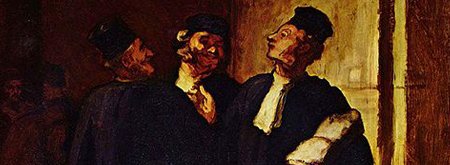
A lawyer's examination of the evidence for Christianity.

The usual attempts to defend the historical reliability of the New Testament are often fairly general in nature. These arguments are…
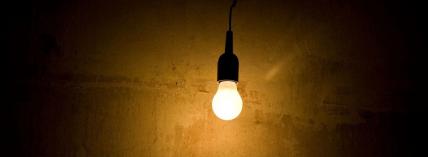
Peter S. Williams examines the historical reliability of the New Testament in the light of the findings of archaeology. “On the…

Bart D. Ehrman is a world expert in the textual criticism of the New Testament who has recently written a best-selling book entitled…
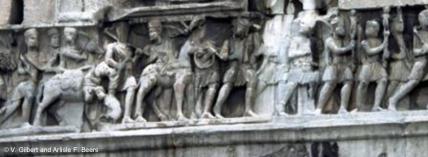
Some people claim that the apostle Paul and later Emperor Constantine changed the pristine religion preached by Jesus for their own ends.…

Giotto’s famous fourteenth century painting of Pilate [view it here] is an intriguing departure from the popular interpretation of…

The way the Gospel accounts use correct place names shows that they were based on reliable information from first hand testimony.

Jewish believers in Jesus (Y'shua) are often confronted with this ‘question’: If Jesus is the Messiah, didn't he accomplish…

A popular story gives a salutary warning of the need to check our sources carefully and be careful in the arguments we use.

Why does Derren Brown believe that 'the Bible is not history'? A consideration of his journey from faith to scepticism.

Hasn't the New Testament been changed since it has been copied and recopied throughout history? A common misconception is that the…

An exploration of the ‘hidden’ first 25 years of the Christian era, examining the impact of Christ upon the ancient world.

A survey of various aspects of contemporary Old Testament study relating to its reliability and authority.
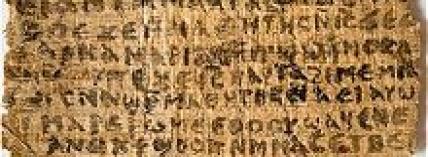
An overview article linking to specific resources that examine the historical reliability of the Old and New Testaments.
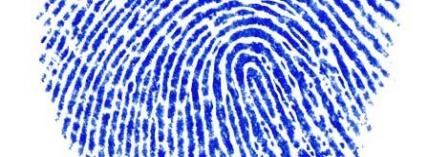
Read this book if you want to be prepared to speak to anyone interested in why they can trust the accounts they read in the Gospels. And…

During the past twenty years, evangelical Christian apologetics has made significant progress in some areas. Today in the field of…

Many non-Christians see the Bible as completely unreliable. Here are some tips for addressing this challenge.

This video considers how long it took before Jesus's first followers came to believe that he was the Son of God.

Can we know who wrote the Gospels? This video examines whether there is any evidence to support the traditional authors.
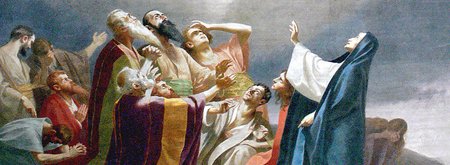
The New Testament makes the assertion that the truth of Christianity stands or falls on the resurrection of Jesus Christ. The apostle Paul…
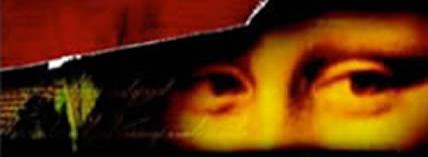
In the book The Da Vinci Code the author Dan Brown poses a question and suggests an answer, in a discussion between the characters of…
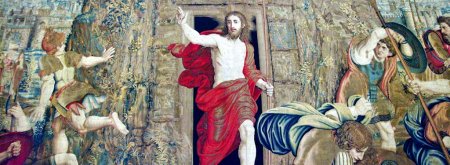
The belief that Jesus rose from the dead is central to Christianity. But how can anyone believe it really happened?

What reasons do we have to trust Mark's Gospel?
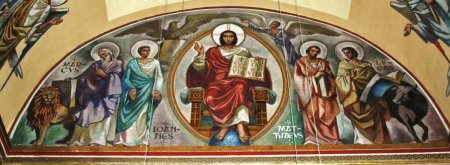
Sean McDowell interviews Mike Licona on how his research into ancient biographies sheds light onto Gospel contradictions.

A review of Bart Ehrman's book claiming that many of the New Testament documents were falsely written under someone else's name.

For the first time, Western Orientalists (primarily in Europe) are applying an external historical / critical analysis of the Qur’an,…

Did Jesus claim or imply that he was anything more than a prophet? Or did his followers transform him into the Son of God many years later?
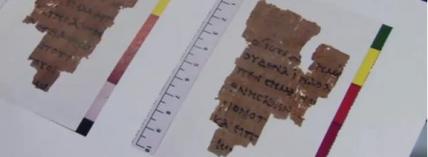
This video describes the discovery of the earliest copy of part of John's Gospel, the 'John Rylands Fragment'.

William Lane Craig sets out the historical and Biblical evidence that leads to the conclusion that Jesus Christ rose from the dead.

Professor Alan Millard critiques the BBC series The Bible's Buried Secrets. Dr Francesca Stavrakopoulou presented three BBC TV programmes…

Once we've got at the facts behind the myths about Jesus, this final video considers what difference he makes to us today.

The Jewish Bible contains over 100 promises about an exceptional person who would come to save the world. But what were the chances that…
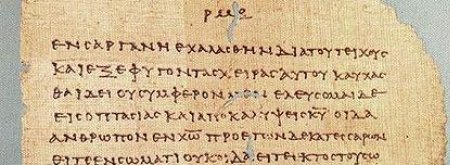
Adrian Holloway tackles the question of whether we can trust what we read in the New Testament or should dismiss it as unsubstantiated myth.

In this video, Richard Bauckham considers whether we can know who were the main witnesses behind the Gospel accounts of Jesus's life.
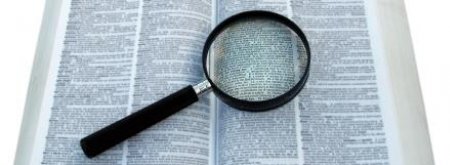
How big are the differences between the hand-written copies of the Gospels' accounts of Jesus? Do these undermine what we can know about…

Can we be confident that we have the original text of the Gospels? How does it compare to other ancient documents?

How can anyone believe the New Testament account of the life of Jesus, seeing that it was written so long after His death? There seems to…
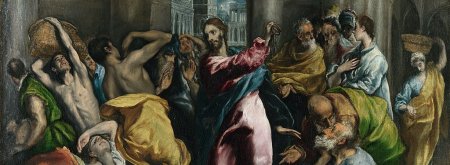
A review of Michael Licona's attempt to explain differences in the Gospel narratives by looking at the work of Plutarch.
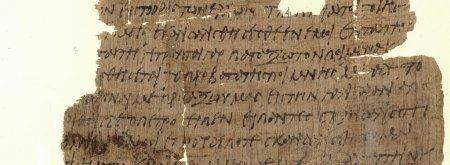
In this academically robust but accessible book, Peter J Williams addresses the trustworthiness of the Gospels.

A brief account of some of the real history and real people to be found in the New Testament.
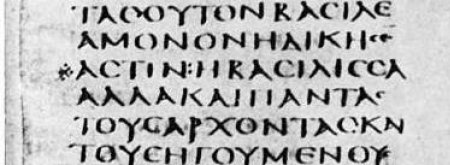
Review of Dirk Jongkind's talk arguing that the message of the Bible is preserved, despite variations between manuscripts
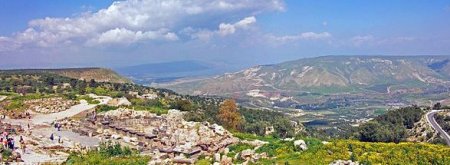
This video describes how the geographical descriptions in the New Testament Gospels demonstrate their reliability.
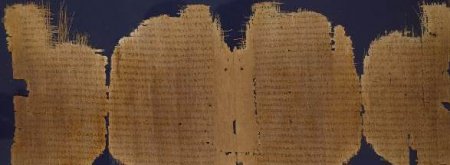
Did 'core' Christian beliefs slowly change over history? This talk considers: the Gospels; the divinity of Jesus; and the resurrection.

Are the Gospels full of contradictions? What would have been seen as normal standards of trustworthy historical writing at that time?

Were the Gospel accounts based on the testimony of eyewitnesses who were still alive when the Gospels were written?

The way the Gospel accounts use the right names for people shows that they were about real people, based on reliable information.

How many hand-written copies of the Gospel accounts are there? What does this reveal about possible mistakes?

Richard Bauckham and James Crossley discuss Bauckham's book 'Jesus and the Eyewitnesses' and consider its implications, on Justin…

Readers of EN may remember a previous article where I reviewed several books by Bart Ehrman. I observed that Ehrman had previously been a…

A day conference on New Testament historical apologetics affirms the reliability of the New Testament using new lines of evidence.

What should we make of claims that differences in the Gospel accounts mean they can't be trusted?

Some reflections on why the canonical Gospels are in the Bible whereas the apocryphal Gospels are not.

Considering the question of whether belief in God lacks the evidence to support it - and why arguments on their own are not enough.

Did the early Christian communities apply Jesus's teaching to the problems they faced or alter the facts to fit their agendas?

Do the Gospels give us any indication that they are using eyewitness testimony? Richard Bauckham examines some of the minor characters in…

Were the Gospel accounts corrupted as they were passed on? Was there any way to prevent this happening?

Myths are stories which are important to societies. But can it be helpful to compare the Gospel to stories such as The Lord of the Rings,…

Finkelstein and Mazar represent two of the most influential Israeli archaeologists of the present generation. Finkelstein is a professor at…
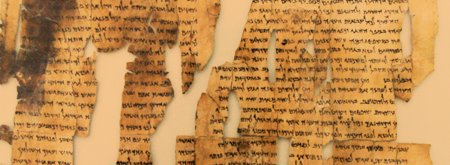
Bart Ehrman and Pete Williams debate the trustworthiness of the New Testament documents on Justin Brierley's 'Unbelievable?' radio…
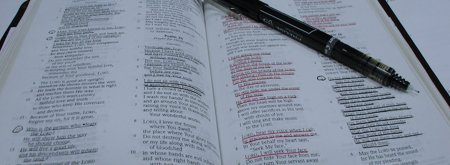
How should we address apparent contradictions in the Bible? This article tackles some specific examples.